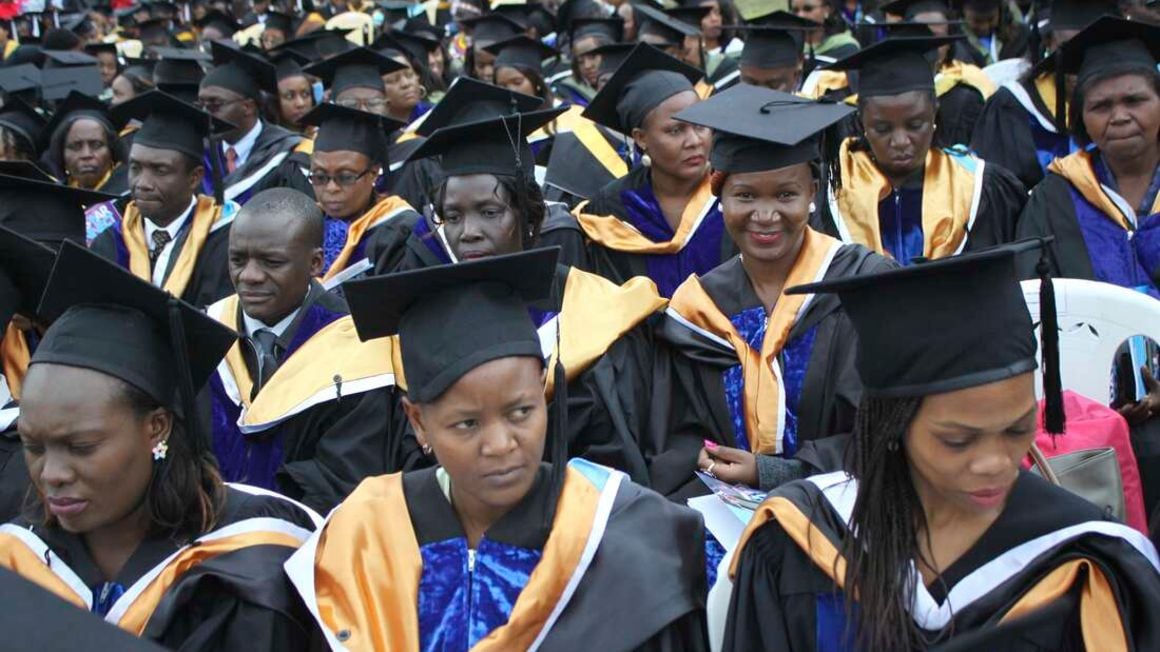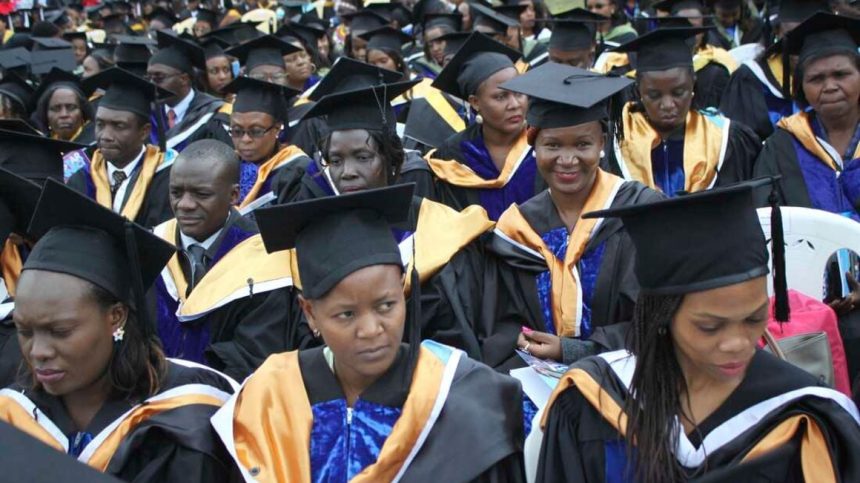Private universities have taken the first hit from the new higher education funding model after the number of government-funded students sent to the institutions dropped to the lowest level in seven years.
The drop in enrolment also worsens the financial crisis facing the private universities. Data from the Kenya Universities and Colleges Central Placement Service (KUCCPS) show that students placed in private universities dropped 67 percent to 9,622 in the recently concluded placement cycle.
This is lower than the 10,984 learners that were placed in 2016 when the programme started.
“The new funding model is an existential risk. There is no level playing ground because the numbers [of students] are so low that they can’t make our universities sustainable past the next five years,” the Kenya Association of Private Universities (KAPU) chairman, Stephen Mbugua, told the Business Daily in an interview on Wednesday. Prof Mbugua is also the vice-chancellor of the Catholic University of East Africa.
The private universities received 29,463 learners last year, 29,661 in 2021, and 27, 756 in 2020.
Under the newly unveiled funding model, government-sponsored (GSS) students opting to join private universities can benefit from loans to settle tuition fees but not scholarships.
The move means that some private universities might resort to job cuts to sustain operations or close shop all together on a biting cash crunch.
“It’s an assault to the private sector because if you remember, top-notch universities like Harvard are still getting more in State funding than public universities,” said Prof Mbugua.
The new framework unveiled in May requires the universities and colleges to declare and publicise on the KUCCPS platform the actual cost of their programmes.
For instance, students opting to pursue law at Daystar University will pay Sh335,000 annually while those enrolling for the programme at Kabarak University will pay Sh256,250 per year.
The same programme is offered at lower rates at public universities such as Moi (Sh183,600), Maseno (Sh183,600), Egerton (Sh214,700), the University of Nairobi (Sh221,850) and Kenyatta University (Sh183,600).
Having the institutions of higher learning declare the cost of their programmes is intended to allow parents, guardians and students an opportunity to find courses that suit them and compare the cost as offered by the various institutions.
In the just concluded placement cycle, Kisii University emerged as the most preferred institution by the 2022 Kenya Certificate of Secondary Education (KCSE) exam candidates.
KUCCPS data show 8,632 students selected Kisii University, followed by Kenyatta University (7,963), Maseno University (7,702), Jomo Kenyatta University of Agriculture and Technology (6,917) and the University of Nairobi (6,912).
KUCCPS chief executive Mercy Wahome attributes the high preference rates for Kisii University to its variety of programmes with C+ as the minimum requirement as well as its affordable tuition costs.
“At least 18 programmes at Kisii University fall in the category where the cost per annum is Sh122,000 and these are the ones that attracted some 3,641 of the 8,632 students placed there,” said Ms Wahome.
Only those that sat the KCSE exam in 2022 were eligible for government placement –in private and public institutions– for degree, diploma and artisan certificate in the just concluded cycle.
Making the final placement list means that they are eligible for government support through scholarships, loans and bursaries.

Over the past five years, nearly all students who scored C+ and above were admitted to the regular university programmes, reducing the pool of learners available for private universities and self-sponsored degree programmes in public ones.
This sharp drop in the number of self-sponsored students enrolled in public universities has resulted in cash flow challenges, leading to a freeze in new hiring and a slowdown in expansion plans as the institutions struggle with huge debts.
Pending bills by public universities ballooned to Sh61 billion by the end of June, due to unremitted statutory deductions, sacco dues, pension, bank loans and unpaid contractors.
This combined with dwindling State capitation and falling student numbers, and the scrapping of parallel programmes has worsened the cash crunch, in what compelled the government to develop a new funding model to remedy total collapse of public universities.
The number of candidates meeting the minimum university entry qualification in the 2022 KCSE examination rose by 19 percent to 173,345 compared to 145,776 recorded the previous year.
Under the new model, funding to students combines scholarships, loans and household contributions on a graduated scale, which is scientifically determined.
Private universities currently have a total of 78,650 GSSs with a DUC requirement of Sh12.28 billion against the budget allocation of Sh3.37 billion – translating to 21 percent of the DUC — in what has compelled some of them to increase tuition fees.



